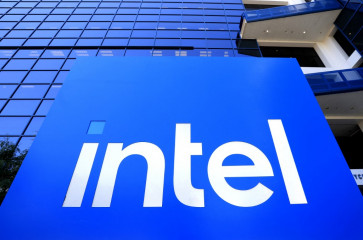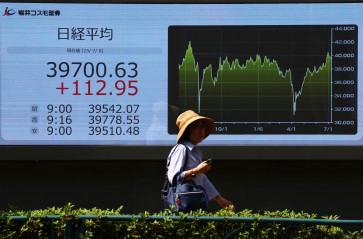Popular Reads
Top Results
Can't find what you're looking for?
View all search resultsPopular Reads
Top Results
Can't find what you're looking for?
View all search resultsApindo cries foul on wage increase proposal
The Indonesian Employers Association’s (Apindo) local branch says an official recommendation to boost the provincial minimum wage (UMP) is invalid and may lead to layoffs if approved by the governor
Change text size
Gift Premium Articles
to Anyone
T
he Indonesian Employers Association’s (Apindo) local branch says an official recommendation to boost the provincial minimum wage (UMP) is invalid and may lead to layoffs if approved by the governor.
Sugito, the deputy chairman of Apindo’s Jakarta branch, said increasing Jakarta’s minimum wage would prompt companies to adjust to increased production costs.
Workers would likely be the first to go in hard times, he added.
“To cope with the higher minimum wage, the most modest measure that employers could take is to stop recruiting new workers. But if they are pushed even harder, layoffs are the only option,” Sugito told The Jakarta Post on Tuesday.
The City Remuneration Board recommended last week that the administration increase the minimum wage following workers’ threats to call a general strike.
The board recommended that the UMP be increased to Rp 1,529,000 (US$170) for 2012, up from its previous demand of Rp 1,497,838.
The current minimum wage for an unmarried worker with under one year’s work experience is Rp 1,290,000.
The board is comprised of representatives from the city administration, labor unions and employer associations and makes annual recommendations on the minimum wage to the governor, who has the final say.
If Governor Fauzi Bowo approves the recommendation, Jakarta will have a minimum wage higher than the city’s standard cost of living (KHL) for the first time in six years.
The KHL was set at Rp 1,497,838 for 2012.
Sugito, who also sits on the board, described its recommendation as bogus since no representatives from Apindo were present when the proposal was passed.
“We received the invitation for the meeting only minutes before the meeting started. Of course we failed attend,” Sugito said.
According to the board’s standing orders, eight city administration representatives and four representatives from labor unions and employer associations must be in attendance to approve a recommendation.
Sugito said that Apindo had yet to decide whether it would challenge the board’s recommendation.
City Remuneration Board chairman Deded Sukendar said that the board’s decision was legitimate.
“We sent an invitation to [Apindo] members but they failed to show up,” Deded, also City Manpower and Transmigration Agency chief, said.
Deded said that the forum had not bowed to pressure from workers by recommending the minimum wage increase.
Buoyed by their success in demanding a higher minimum wage, labor unions in the city have also called for a higher sectoral minimum wage.
“We are proposing that the sectoral minimum wage be 22 percent higher than the regular minimum wage,” Muhammad Rusdi, spokesperson of the Jakarta Labor Forum, said.
Sectoral minimum wages are at least five percent higher than the regular minimum wage, especially in more lucrative sectors.
The top 10 sectors in the capital are infrastructure and public works; chemical, energy and mining; metal, electronics and machinery; automotive; insurance and banking; food and beverage; health and pharmaceuticals; textiles, clothing and leather; tourism; and communications.










